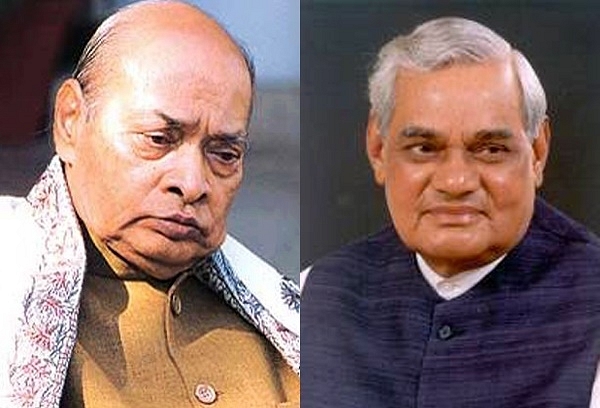Dynastic concerns have killed India’s creativity and growth.
The credit for this piece should go to this writer’s friend who was recently diagnosed with cancer. Having the most wonderful idlis on a balmy afternoon yesterday at a small, undiscovered restaurant in Gurgaon, the conversation inevitably was dominated by his illness, a situation requiring assuaging, morale boosting and reassurances all around. Less inevitably, the conversation turned to politics, led there by a prior agreeable discussion on individualism.
The consensus was that Indians did not value individuals as a rule and barely understood individualism and its imperative necessity. This writer’s friend then brought up the example of Prime Minister Narendra Modi. “He is highly individualistic,” he said. “This is why he is so misunderstood. His vision is of an individual’s, which will undoubtedly take the country to greatness. His opponents are family people, mediocrities who cannot visualize beyond their families. The West values individualism. We don’t. This is why we are not a great nation.” As an aside, he pointed out something quite true: “We haven’t produced a single great Modern writer.”
Damning. India is run by a great many families in all walks of life. Dynastic politics has been the bane of this country for sixty years and more. Consider chronologically India’s few economic reformers at the highest level: P. V. Narasimha Rao, Manmohan Singh, A. B. Vajpayee and presently Narendra Modi. With the exception of Manmohan Singh, they have all been single. And including Singh, they all have impeccable non-dynastic credentials. If you add Nitish Kumar from the states, you would discover an iron formulation: Dynasty equals non-reforms, nepotism, policy opacity, divisiveness, corruption and economic downturn. Non-dynasts stand for the opposite.
Indian companies equally are loathsome dynastic operations. Only a handful are doing well and enthusiastic about the Prime Minister’s manufacturing initiatives. The majority are sitting on mountains of cash with no stomach for risk-taking. Somewhere, Modi has given up on them and placed his confidence on small enterprises and foreign investors. This is a risky course but he has no alternative. Without risk-taking, there can be no growth and development. In the West, most of the big corporations have left their family promoters far behind. Talent and managerial efficiency are all that count. Not here.
Turn to Indian films which are uniformly rubbish and unwatchable. They dutifully pay homage to the family and garnish it with vulgarity, gratuitous violence, crudeness, loudness and bad taste. There is complete absence of creativity in Indian films. (The 1970s and early 1980s are exceptional perhaps.) The individual has no place in Indian cinema. There is politics, the present, and news television reality. As with politics, a few families control the film industry, and this also explains its present awful state. As for Indian literature, including the so-called Anglo-Indian literature, it has already been damned by this writer’s friend. When family and its low concerns come into the centre of things, they destroy individualism, and that is the end of everything new and creative. This state of affairs is terrible for entrepreneurship. Entrepreneurship requires a climate of uncertainty clouded with challenges. Family represents certainty and encourages the mass production of baba-logs. If India has to be anything, it has to shun baba-logs, and put its confidence in individuals. The young are already in that space-time. The rest of the country must catch up.
In this in-between state, Prime Minister Modi has arisen from nowhere, and he threatens the family’s octopus-like hold on India. The family-led power brokers are at a loss how to contain him and compromise his individualism. He has no friends and family. His work is his sole solace. So on Diwali when we are all huddling with companions and relatives, Modi is headed to Jammu and Kashmir for a government outreach programme. Without sons and daughters and countless more generations to provide for, he is able to devote all his time to the country. His lack of an immediate family makes him highly individualistic and original. India needs him and more people like him in all walks of life. Without a fierce spirit of individualism, India has no future.
Support Swarajya's 50 Ground Reports Project & Sponsor A Story
Every general election Swarajya does a 50 ground reports project.
Aimed only at serious readers and those who appreciate the nuances of political undercurrents, the project provides a sense of India's electoral landscape. As you know, these reports are produced after considerable investment of travel, time and effort on the ground.
This time too we've kicked off the project in style and have covered over 30 constituencies already. If you're someone who appreciates such work and have enjoyed our coverage please consider sponsoring a ground report for just Rs 2999 to Rs 19,999 - it goes a long way in helping us produce more quality reportage.
You can also back this project by becoming a subscriber for as little as Rs 999 - so do click on this links and choose a plan that suits you and back us.
Click below to contribute.
Latest
